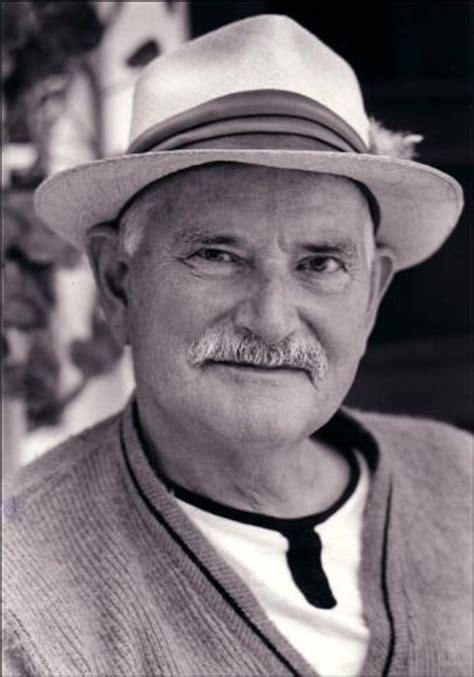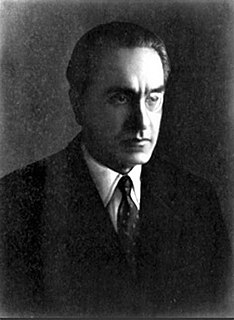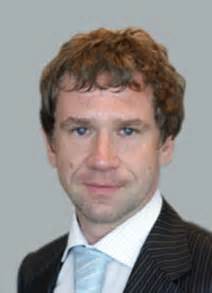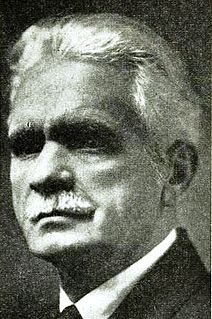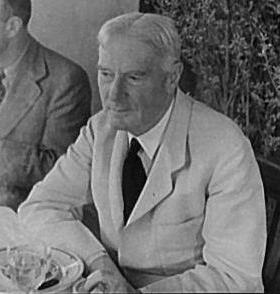Top 589 Attained Quotes & Sayings - Page 10
Explore popular Attained quotes.
Last updated on April 20, 2025.
He who has attained the freedom of reason to any extent cannot, for a long time, regard himself otherwise than as a wanderer on the face of the earth - and not even as a traveler towards a final goal, for there is no such thing. But he certainly wants to observe and keep his eyes open to whatever actually happens in the world; therefore he cannot attach his heart too firmly to anything individual; he must have in himself something wandering that takes pleasure in change and transitoriness.
We patronize the animals for their incompleteness, for their tragic fate of having taken form so far below ourselves. And therein we err, and greatly err. For the animal shall not be measured by man. In a world older and more complete than ours, they are more finished and complete, gifted with extensions of the senses we have lost or never attained, living by voices we shall never hear. They are not brethren, they are not underlings; they are other Nations, caught with ourselves in the net of life and time.
I always was interested in prose. As a teenager, I published short stories. And I always wanted to write the long short story, I wanted to write a novel. Now that I have attained, shall I say, a respectable age, and have had experiences, I feel much more interested in prose, in the novel. I feel that in a novel, for example, you can get in toothbrushes and all the paraphernalia that one finds in dally life, and I find this more difficult in poetry.
Both good and evil, when they are full grown, become retrospective...That is what mortals misunderstand. They say of some temporary suffering, 'No future bliss can make up for it,' not knowing that Heaven, once attained, will work backwards and turn even that agony into a glory. And of some sinful pleasure they say 'Let me but have this and I'll take the consequences': little dreaming how damnation will spread back and back into their past and contaminate the pleasure of the sin.
The first [quality] to be named must always be the power of attention, of giving one's whole mind to the patient without the interposition of anything of oneself. It sounds simple but only the very greatest doctors ever fully attain it. ... The second thing to be striven for is intuition. This sounds an impossibility, for who can control that small quiet monitor? But intuition is only interference from experience stored and not actively recalled. ... The last aptitude I shall mention that must be attained by the good physician is that of handling the sick man's mind.
The difference between magic and meditation methods is the difference between drugs and diet—medicines will do swiftly what diet can only effect slowly, and in critical cases there is no time to wait for the slow processes of dietetics, so it must be either medicines or nothing. Nevertheless, drugs are no substitute for right diet and wholesome regime, and although magic enables a speedy and potent result to be attained, is is only by means of right understanding and right ethics that the position which has been won can be held.
If, therefore, man has come into the world to search for God and, if he has found Him, to adhere to Him and to find repose in adhering to Him-man cannot search for Him and attain Him in this sensible and corporeal world, since God is spirit rather than body, and cannot be attained in intellectual abstraction, since one is able to conceive nothing similar to God, as he asserts-how can one, therefore, search for Him in order to find Him?
That until the philosophy which holds one race superior and another inferior is finally and permanently discredited and abandoned: That until there are no longer first-class and second class citizens of any nation; That until the color of a man's skin is of no more significance than the color of his eyes; That until the basic human rights are equally guaranteed to all without regard to race; That until that day, the dream of lasting peace and world citizenship and the rule of international morality will remain but a fleeting illusion, to be pursued but never attained.
There is an earthly sun, which is the cause of all heat, and all who are able to see may see the sun; and those who are blind and cannot see him may feel his heat. There is an Eternal Sun, which is the source of all wisdom, and those whose spiritual senses have awakened to life will see that sun and be conscious of His existence; but those who have not attained spiritual consciousness may yet feel His power by an inner faculty which is called Intuition.
Meditative state is the highest state of existence. So long as there is desire, no real happiness can come. It is only the contemplative, witness-like study of objects that brings to us real enjoyment and happiness. The animal has its happiness in the senses, the man in his intellect, and the god in spiritual contemplation. It is only to the soul that has attained to this contemplative state that the world really becomes beautiful. To him who desires nothing, and does not mix himself up with them, the manifold changes of nature are one panorama of beauty and sublimity.
If I... if I competed in Bruno Sammartino's era, I'd have been champion for 20 years, too. No, I'd have been champion for 30 years. Because wrestling one night a month at Madison Square Garden is easy. You never see a Hulk Hogan wrestle TLC matches against a superstar like Ryback. Because he had it easy. I wrestle physically demanding matches on free television, week in and week out. So much that my one year equals 30 of theirs. And I have attained this success, not... not because of you. I am successful not because of you. I am successful in spite of you.
It is also an absolute mistake to believe that the State can be anything other than a civitas diaboli if it does not resurrect itself as Imperium, and it is also a mistake to want to build the Imperium on the basis of economic, military, industrial or even 'intellectual' or nationalist factors. The Imperium, according to the primordial conception rooted in Tradition, is something transcendent, and it can only be attained by those who have the power to transcend the lives of petty men and their appetites, their sentimentalisms, their national prides, their 'values', and their phobias.
The disobedient child is continuously condemned. The obedient child is, on the other hand, continuously praised. But have you heard of any obedient child having become world-famous in any dimension of creativity? Have you heard of any obedient child who has attained the Nobel prize for anything - literature, peace, science? The obedient child becomes just the common crowd. All that is added to existence is added by the disobedient.
In the beginner's mind there is no thought, "I have attained something." All self-centered thoughts limit our vast mind. When we have no thought of achievement, no thought of self, we are true beginners. Then we can really learn something. The beginner's mind is the mind of compassion. When our mind is compassionate, it is boundless. Dogen-zenji, the founder of our school, always emphasized how important it is to resume our boundless original mind. Then we are always true to ourselves, in sympathy with all beings, and can actually practice.
To you, Christianity, Judaism, Islam, Buddhism, and Hinduism look very different, but to me they look the same. Many of you would say that something like Buddhism doesn't even belong on the list, since it doesn't link salvation to divine worship, but to me this is just a quibble. Christianity, Judaism, Islam, Buddhism, and Hinduism all perceive human beings as flawed, wounded creatures in need of salvation, and all rely fundamentally on revelations that spell out how salvation is to be attained, either by departing from this life or rising above it.
Where did I get it from? Was it by reason that I attained to the knowledge that I must love my neighbour and not throttle him? They told me so when I was a child, and I gladly believed it, because they told me what was already in my soul. But who discovered it? Not reason! Reason has discovered the struggle for existence and the law that I must throttle all those who hinder the satisfaction of my desires. That is the deduction reason makes. But the law of loving others could not be discovered by reason, because it is unreasonable.
There is (as I now find) no remorse for time long past, even for what may have mortified us or made us ashamed of ourselves when it was happening: there is a pleasant panoramic sense of what it all was and how it all had to be. Why, if we are not vain or snobbish, need we desire that it should have been different? The better things we missed may yet be enjoyed or attained by someone else somewhere: why isn't that just as good? And there is no regret, either, in the sense of wishing the past to return, or missing it: it is quite real enough as it is, there at its own date and place.
Those who are not capable of sinning are said that they have attained freedom. The knowledge of the Truth raises them even more. This makes them both free and above this world. But only Love creates. He who became free thanks to knowledge, because of Love remains a slave of those who have not managed to attain the Freedom of knowledge yet. He brings the knowledge to them and this develops the latter because it calls them to the Freedom. Love takes nothing: how can it take something? Everything belongs to it. It does not say, "This is mine! And this is mine!" But it says: "This is yours!"
He who has learnt to control his tongue has attained self-control in a great measure. When such a person speaks he will be heard with respect and attention. His words will be remembered, for they will be good and true. When one who is established in truth prays with a pure heart, then things he really needs come to him when they are really needed: he does not have to run after them. The man firmly established in truth gets the fruit of his actions without apparently doing anything. God, the source of all truth, supplies his needs and looks after his welfare.
Let's consider: at the time of the Buddha, when he attained enlightenment, according to the old texts, in the first watch of the night, he went through all of his past lifetimes. Then in the second watch of the night, his mind opened still further and encompassed the coming into being and dying and re-coming into being of all beings, everywhere. The third watch of the night, he realized interdependent origination. He realized interdependent origination because he saw it. It wasn't some theory he thought up. He saw it. That was his enlightenment experience. That was why he was a Buddha.
So the most difficult thing is always to keep your beginner's mind. There is no need to have a deep understanding of Zen. Even though you read much Zen literature, you must read each sentence with a fresh mind. You should not say, "I know what Zen is," or "I have attained enlightenment." This is also the real secret of the arts: always be a beginner. Be very very careful about this point. If you start to practice zazen, you will begin to appreciate your beginner's mind. It is the secret of Zen practice.
If you are remembering evil against someone, then pray for him; and as you remove through prayer the pain of the remembrance of the evil he has done, you will stop the advance of the passion. And when you have attained brotherly love and love for mankind, you will completely cast this passion out of your soul. Then when someone else does evil to you, be affectionate and humble toward him, and treat him kindly, and you will deliver him from this passion.
Day and night will not cease. Yet, you need not continue viewing them as opposites. There is no longer a need to think that night has the same power as day. There is just the power of light, with variations of intensity and interruption. Once the full scope of understanding is attained, duality fades away. Higher intelligence is manifested through integrated perceptions of wholeness which restore your recognition of the one spirit. The sons of God are those who do not explain life or manage it with dualistic concepts. The sons of God are those who seek to perceive wholeness in all things.
When indeed shall we learn that we are all related one to the other, that we are all members of one body? Until the spirit of love for our fellow people, regardless of race, color, or creed, shall fill the world, making real in our lives and our deeds the actuality of human brother- and sisterhood, until the great mass of the people shall be filled with the sense of responsibility for each other's welfare, social justice can never be attained.
You live as if you were destined to live forever, no thought of your frailty ever enters your head, of how much time has already gone by you take no heed. You squander time as if you drew from a full and abundant supply, so all the while that day which you bestow on some person or thing is perhaps your last. You have all the fears of mortals and all the desires of immortals… What foolish forgetfulness of mortality to defer wise resolutions to the fiftieth or sixtieth year, and to intend to begin life at a point to which few have attained.
The rishis of old attained the Knowledge of Brahman. One cannot have this so long as there is the slightest trace of worldliness. How hard the rishis laboured ! Early in the morning they would go away from the hermitage, and would spend the whole day in solitude, meditating on Brahman. At night they would return to the hermitage and eat a little fruit or roots. They kept their mind aloof from the objects of sight, hearing, touch, and other things of a worldly nature. Only thus did they realize Brahman as their own inner conciousness.
From day to day, from moment to moment, she increased so much this twofold plenitude that she attained an immense and inconceivable degree of grace. So much so, that the Almighty made her the sole custodian of his treasures and the sole dispenser of his graces. She can now ennoble, exalt and enrich all she chooses. She can lead them along the narrow path to heaven and guide them through the narrow gate to life. She can give a royal throne, sceptre and crown to whom she wishes.
If only you could see the whole picture, if you knew the whole story, you would realize that no problem ever comes to you that does not have a purpose in your life, that cannot contribute to your inner growth. When you perceive this, you will recognize that problems are opportunities in disguise. If you did not face problems, you would just drift through life. It is through solving problems in accordance with the highest light we have that inner growth is attained.
In the West, there's a myth that freedom means free expression-that to follow all desires wherever they take one is true freedom. In fact, as one serves the mind, one sees that following desires, attractions, and repulsions is not at all freedom, but is a kind of bondage. A mind filled with desires and grasping inevitably entails great suffering. Freedom is not to be gained through the ability to perform certain external actions. True freedom is an inward state of being. Once it is attained, no situation in the world can bind one or limit one's freedom.
We must do business in great waters; we must be really on the deck in a storm, if we would see the works of the Lord and His wonders in the deep. We must have stood side by side with King David; we must have gone down into the pit to slay the lion or have lifted up the spear against the eight hundred, if we would know the saving strength of God's right hand. Conflicts bring experience, and experience brings that growth in grace which is not to be attained by any other means.
The mysteries of a universe made of drops of fire and clods of mud do not concern us in the least. The fate of humanity condemned ultimately to perish from cold is not worth troubling about. If you take it to heart it becomes an unendurable tragedy. If you believe in improvement you must weep, for the attained perfection must end in cold, darkness and silence. In a dispassionate view the ardour for reform, improvement for virtue, and knowledge, and even for beauty is only a vain sticking up for appearances as though one were anxious about the cut of one's clothes in a community of blind men.
I'm focussing on what I haven't attained, not what I have. A lot has come to me early. I don't want to get consumed with that. Winners live in the present tense. People who come up short are consumed with future or past. I want to be living in the now. My goal is to play one full game in the now, but I haven't even gotten past the first inning yet. I start thinking about where my mom is or if my dogs have been fed. The average human has 2,000 thoughts a day. The really accomplished have 1,500 because you can focus longer. I need to learn how to focus longer.
For I have shown from the Scriptures, that no one of the sons of Adam is as to everything, and absolutely, called God, or named Lord. But that He is Himself in His own right, beyond all men who ever lived, God, and Lord, and King Eternal, and the Incarnate Word, proclaimed by all the prophets, the apostles, and by the Spirit Himself, may be seen by all who have attained to even a small portion of the truth. Now the Scriptures would not have testified these things of Him, if, like others, He had been a mere man.
The cry for freedom is a sign of suppression. It will not cease to ring as long as man feels himself captive. As diverse as the cries for freedom may be, basically they all express one and the same thing: The intolerability of the rigidity of the organism and of the machine-like institutions which create a sharp conflict with the natural feelings for life. Not until there is a social order in which all cries for freedom subside will man have overcome his biological and social crippling, will he have attained genuine freedom.
Knowledge of the truth I may perhaps have attained to; happiness certainly not. What shall I do? Accomplish something in the world, men tell me. Shall I then publish my grief to the world, contribute one more proof for the wretchedness and misery of existence, perhaps discover a new flaw in human life, hitherto unnoticed? I might then reap the rare reward of becoming famous, like the man who discovered the spots on Jupiter. I prefer, however, to keep silent.
This having learnt, thou hast attained the sum Of wisdom; hope no higher, though all the stars Thou knew'st by name, and all th'ethereal powers, All secrets of the deep, all nature's works, Or works of God in heav'n, air, earth, or sea, And all the riches of this world enjoy'dst, And all the rule, one empire; onlyadd Deeds to thy knowledge answerable, add faith, Add virtue, patience, temperance, add love, By name to come called charity, the soul Of all the rest: then wilt thou not be loath To leave this Paradise, but shalt possess A paradise within thee, happier far.
First, we believe that God is a being with a body in form like man's; that he possesses body, parts and passions; that in a word, God is an exalted, perfected man. Secondly, we believe in a plurality of Gods. Third, we believe that somewhere and some time in the ages to come, through development, through enlargement, through purification until perfection is attained, man at last may become like God - a God.
I'll tell you what I'd do if it were up to me: I would establish a strictly controlled distribution network through which I would make most drugs, excluding the most dangerous ones like crack, legally available. Initially I would keep the prices low enough to destroy the drug trade. Once that objective was attained I would keep raising the prices, very much like the excise duty on cigarettes, but I would make an exception for registered addicts in order to discourage crime. I would use a portion of the income for prevention and treatment. And I would foster social opprobrium of drug use.
When longing is most intense separation is complete, and the purpose of separation, which was that Love might experience itself as Lover and Beloved, is fulfilled; and union follows. And when union is attained, the lover knows that he himself was all along the Beloved whom he loved and desired union with; and that all the impossible situations that he overcame were obstacles which he himself had placed in the path to himself. To attain union is so impossibly difficult because it is impossible to become what you already are! Union is nothing other than knowledge of oneself as the Only One.
Here's a pointer culled from the careers of men who have attained notable success: Don't sit in your office during the hours prospects can be seen. Do your office work before or after the hours during which possible customers can be reached. This may mean adding an hour or two quite often to your day's work; but in times like this particularly, the securing of a satisfactory amount of business through the expenditure of an extra hour or two a day is not an unreasonable price to pay.
Desire is our imprisonment. The man who wants nothing, who is absolutely contented as he is, is free of all bondage. He has attained to ultimate freedom, nirvana - and that is the goal of life. And it is only by attaining that freedom that you will know the significance of being, the song of being, the celebration of being. Your life will become a continuous bliss, and not only that YOU will be blissful, you will be able to bless others too. The whole existence will be blessed by you, by your very presence.
What has been attained may again be lost. Only when you realise the true peace, the peace you have never lost, that peace will remain with you for it was never away. Instead of searching for what you do not have, find out what is it that you have never lost. That which is there before the beginning and after the ending of everything, to That there is no birth nor death. That Immovable state, which is not affected by the birth and death of a body or a mind, that state you must perceive.
Renunciation - non-resistance - non-destructiveness - are the ideals to be attained through less and less worldliness, less and less resistance, less and less destructiveness. Keep the ideal in view and work towards it. None can live in the world without resistance, without destruction, without desire. The world has not come to that state yet when the ideal can be realised in society.
It is therefore, the interest of all, that every one, from birth, should be well educated, physically and mentally, that society may be improved in its character, - that everyone should be beneficially employed, physically and mentally, that the greatest amount of wealth may be created, and knowledge attained, - that everyone should be placed in the midst of those external circumstances that will produce the greatest number of pleasurable sensations, through the longest life, that man may be made truly intelligent, moral and happy, and be thus prepared to enter upon the coming Millennium.
You can't be genuinely prosperous unless you have personal freedom. You will have attained true personal freedom in this world when you can get up in the morning when you want to get up; go to sleep when you want to go to sleep; and in the interval, work and play at the things you want to work and play at - all at your own pace.
What is all wisdom save a collection of platitudes? Take fifty of our current proverbial sayings—they are so trite, so threadbare, that we can hardly bring our lips to utter them. None the less they embody the concentrated experience of the race, and the man who orders his life according to their teaching cannot go far wrong. How easy that seems! Has any one ever done so? Never. Has any man ever attained to inner harmony by pondering the experience of others? Not since the world began! He must pass through the fire.
EACH AND EVERY master, regardless of the era or place, heard the call and attained harmony with heaven and earth. There are many paths leading to the peak of Mount Fuji, but the goal is the same. There are many methods of reaching the top, and they all bring us to new heights. There is no need to battle with each other-we are all brothers and sisters who should walk the Path together, hand in hand. Keep to your Path, and nothing else will matter. When you lose your desire for things that do not matter, you will be free.
There is a true feminist movement in Buddhism that relates to the goddess T?r?. Following her cultivation of bodhicitta, the bodhisattva's motivation, she looked upon the situation of those striving towards full awakening and she felt that there were too few people who attained Buddhahood as women. So she vowed, 'I have developed bodhicitta as a woman. For all my lifetimes along the path I vow to be born as a woman, and in my final lifetime when I attain Buddhahood, then, too, I will be a woman.'
I look upon the giving away of a religious tract as only the first step for action not to be compared with many another deed done for Christ; but were it not for the first step we might never reach to the second, but that first attained, we are encouraged to take another, and so at the last There is a real service of Christ in the distribution of the gospel in its printed form, a service the result of which heaven alone shall disclose, and the judgment day alone discover. How many thousands have been carried to heaven instrumentally upon the wings of these tracts, none can tell

